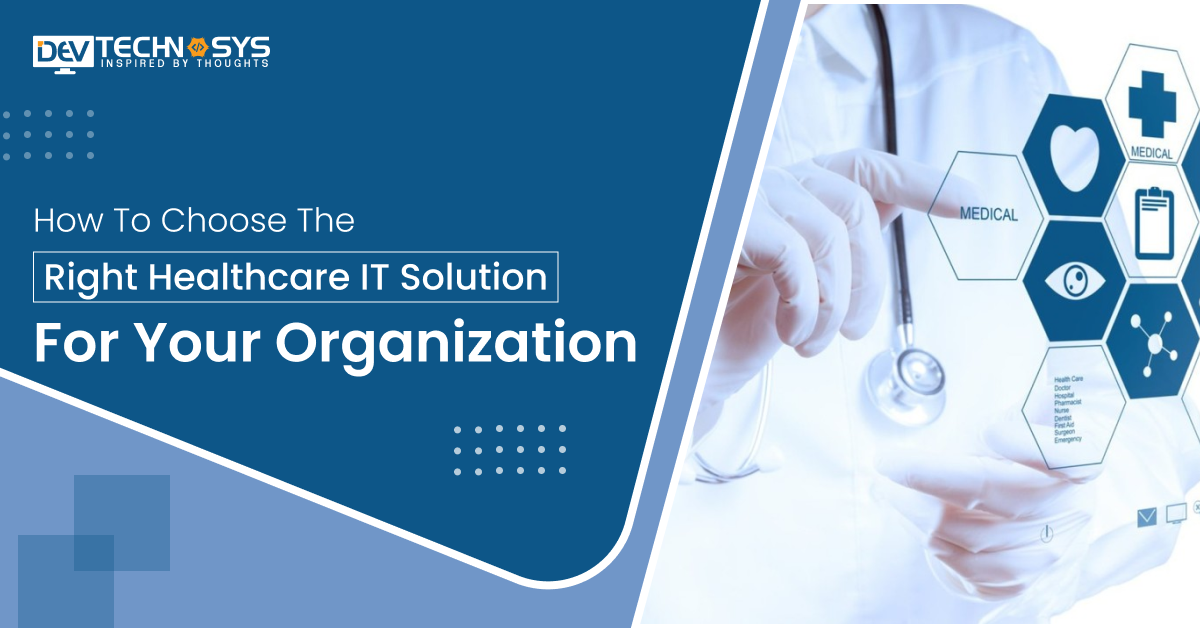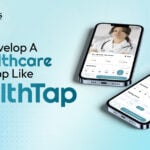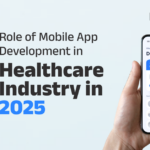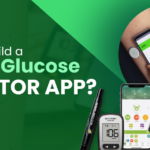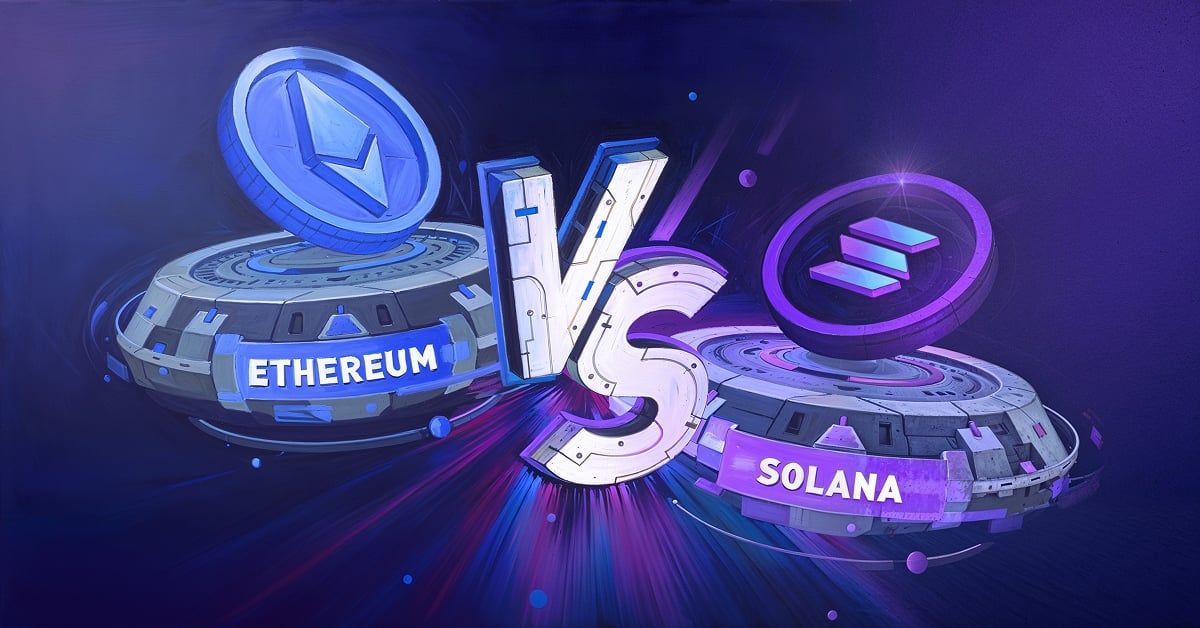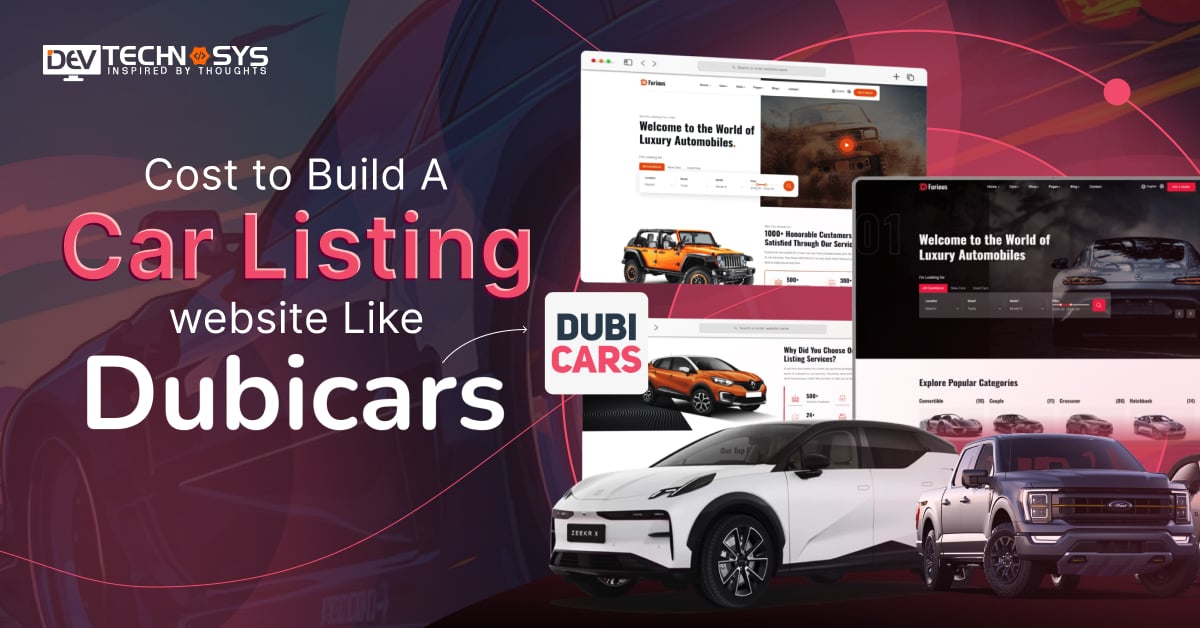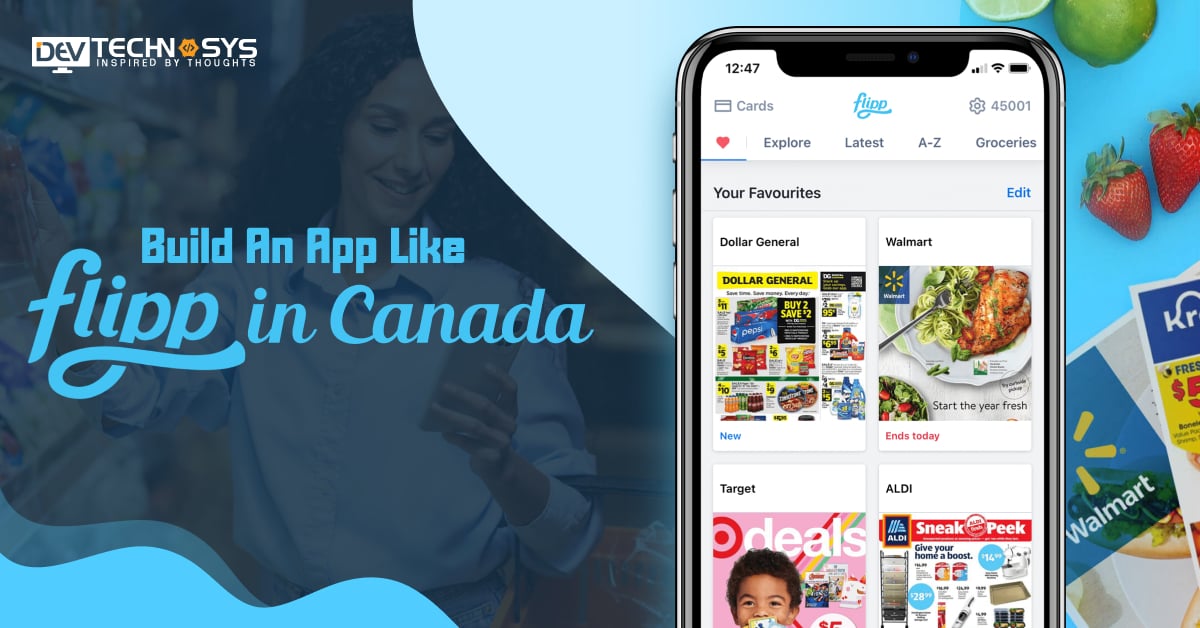Are you exhausted from manually managing patient data? It’s time to liberate your organization with the right healthcare IT solution. These solutions can significantly enhance your operational efficiency and patient satisfaction. By automating tasks, you can improve financial data management, ensure compliance, facilitate data sharing, enhance clinical decision-making, and ultimately improve patient outcomes.
According to a study, the healthcare IT solutions market was valued at $28.66 billion in 2022 and is projected to reach around $77.43 billion by the end of 2032. This data shows the financial potential and growth opportunities for organizations or businesses investing in healthcare IT solutions. It’s an optimistic outlook for those looking to streamline their operations.
This blog helps you choose the right healthcare IT solution for your organization and explore its extraordinary benefits or reliability.
So, stay tuned with us!
Quick Summary: This blog will teach you to choose the right healthcare IT solution for your organization and different types of healthcare software. It will also explore the development stages, the cost involved, and how organizations can benefit from investing in healthcare IT solutions.
What is a Healthcare IT Solution?
Healthcare IT solution is a technology specially designed to manage and streamline healthcare operations and clinicals, ensure compliance, and improve patient outcomes or care. It mainly involves many tools or software such as Electronic health records (EHR), Hospital information systems (HIS), Clinical decision support systems (CDSS), and telemedicine platforms. So, develop a healthcare app or software that can enhance operational efficiency and provide real-time access to critical information.
- It provides digital management of the patient’s valuable data and improves accessibility for staff members.
- It provides real-time advice for diagnosis, treatment, and improving decision-making.
- It allows patients to gain telemedicine, enable remote consultations, and expand patient care areas.
- It provides secure sharing of patient’s sensitive information across the system.
Top 20 Best Different Types of Healthcare Software
Existing healthcare software can help you understand the strengths or weaknesses and choose the right healthcare IT solution for your organization or business. So, here we provide the best wellness and healthcare mobile apps or software:

1. Electronic Health Records(EHR)
EHR is one of the most popular software for sorting and managing patient data. It provides real-time access to patient information, such as medical history, diagnosis, treatment, reports, and test results. It is mainly used to store sensitive patient data, such as medication types, procedures, and recovery information.
2. Hospital information systems (HIS)
HIS is the best-integrated software for managing or handling hospital operations. It performs many hospital operations, such as billing, patient admission, scheduling, inventory management, patient medical informatics, and staff member information. Contact a real estate IT solutions company to choose the right healthcare IT solution for your organization.
3. Clinical decision support systems (CDSS)
CDSS are provide extraordinary tools for the healthcare providers for making decisions about clinical. Clinical decision support systems enhance the decision making by offering valuable data insights, real-time analytics, improving patient’s care, reducing errors and provide best guidelines.
4. Medical Database Software
Medical database software is much similar in woking of electronic health records(EHR). According to IT consulting firm of healthcare, it stores the patient’s sensitive information such as patient’s history, treatment plans, diagnosis, and the database organized in diease manner rather patient’s profile.
5. Medical Research Software
Medical research software collects, analyzes, and manages clinical or scientific data or information. It provides advanced tools for researchers to track patient outcomes, design studies, compare patient symptoms, and generate reports. It supports evidence-based tools in medicine and healthcare.
6. Medical Diagnosis Software
It is one of the best IT consulting firms or software for allowing doctors or staff members to exchange patient records. It is mainly designed to identify or analyze the patient’s symptoms, test history, diagnosis, treatment, and test results. Develop a health checkup app or software to increase your organization’s growth and user base.
7. Medical Imaging Software
Medical imaging software enables the capture or analysis of medical images such as X-rays, MRI, CT scans, PET scans, and 3d models. It provides advanced tools for enhancing image quality, clear vision, and conducting detailed view of reports. It is mainly designed for both patients and doctors.
8. E-prescribing Software
It is one of the top healthcare software integrations designed for doctors. It allows healthcare providers or doctors to generate, send, renew, and remove medical prescriptions electronically. Consult a medicine delivery app development company to choose the right healthcare IT solution for your organization.
9. Telemedicine Software
It is one of the most famous health IT consulting software that provides remote consultations between patients and health providers or doctors. It allows patients to consult with doctors through video conferencing, audio calls, and chat communication. It is specially designed to enhance patient care and scheduling virtual appointments.
10. Appointment Scheduling Software
It is the best health IT infrastructure software for booking appointments with healthcare providers. It allows patients to book online appointments, receive automatic reminders, and receive real-time availability updates. If you want to build commercial service software for healthcare sector, then it is a massive chance to grow your organization with a user base.
11. Hospital Management Software
It is the best Patient management software to streamline patient admissions, billing processes, inventory management, patient treatment records, and data sharing. Hospital management software improves operational efficiency, optimizes resource utilization, and enhances communication across multiple departments.
Interested in a chatbot demo, pricing, or more info? Fill out the form our expert will contact you shortly.
Chatbot Demo
Cost to Develop an app
Industry Report
Case Study
12. Medical Billing Software
It is one of the best healthcare data security software programs for managing patients’ invoices, billing, payment transactions, and other financial operations. It performs many financial automated operations such as submitting and generating. If you want to choose the right healthcare IT solution for your organization, connect with a full stack development company.
13. Medical Equipment Management Software
MEM is the best healthcare interoperability software that tracks and manages the lifecycle of medical devices or equipment. It monitors the medical devices’ scheduling, usage, and inventory levels, ensuring compliance and timely servicing. It is mainly designed to enhance the efficiency and safety of medical equipment.
14. Health Tracking Apps
It is one of the most famous healthcare analytics software that monitors personal health such as diet, sleeping patterns, physical activities, and vital signs. According to manufacturing IT solutions provider of healthcare it allows users to track progress, manage health conditions, and support wellness goals.
15. Remote Patient Monitoring
It is the best healthcare technology software that tracks and collects health data from patients. Remote Patient Monitoring(RPM) observes vital signs such as blood pressure, glucose levels, heartbeat levels, and oxygen levels(spO2) through wearable devices or sensors. It is mainly used to enhance the patient’s outcomes or care.
16. Mobile Health Apps
It is healthcare medical software that tracks or observes personal health via smartphones or tablets. Mobile Health Apps(mHealth apps) offer various services, such as tracking physical activities, managing medications, monitoring vital signs, and providing health information. They empower users to take control of their health.
17. Pharmacy Management Software
It is the best healthcare IT services or software for managing medication operations, prescriptions, and inventory. It ensures the accuracy of managing patient records and tracking drug stock levels. If you want to choose the right healthcare IT solution for your organization, contact a construction IT solutions development company.
18. Patient Portal Software
Patient portal software is an online healthcare management system platform that allows patients to access their health information, such as medical reports and appointment details. It provides a user-friendly interface, streamlines administrative tasks, and enhances patient engagement and communication with health providers or doctors.
19. Revenue Cycle Management Software
RCM is top IT strategy consulting of healthcare financial management. It provides financial services such as patient billing processes, claims processing, invoices, and revenue collection. To choose the right healthcare IT solution for your organization, consult with logistics IT solutions company.
20. Laboratory Information Management Systems
LIM is health information technology implementation software that manages laboratory operations such as sample tracking, test samples, test processing, and data analysis. It provides automated workflows, analyzes reports, provides real-time access to results, and enhances data regulation or integrity.
5 Benefits to Choose the Right Healthcare IT Solution For Your Organization
Every organization wants to optimize operations and enhance patient care easily in this generation. Choose the right healthcare IT solution for your organization is crucial for improving operational efficiency, supporting data management, and providing higher quality patient care. Here are the key benefits of healthcare mobile app development:
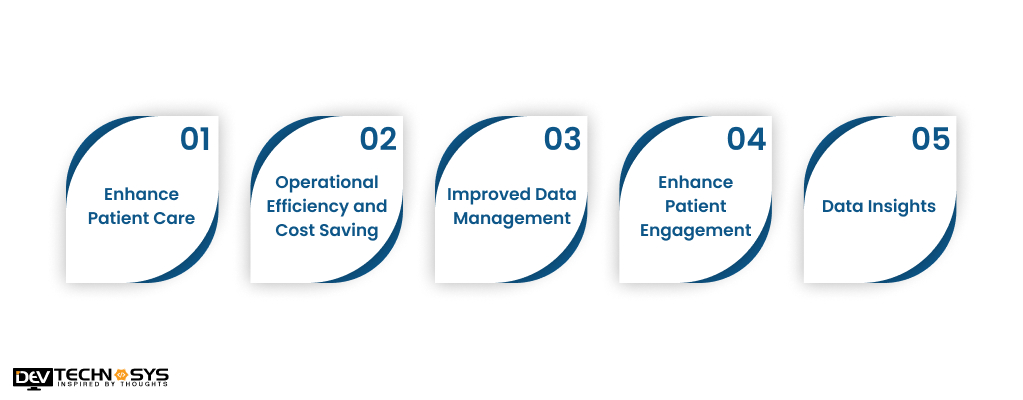
1. Enhance Patient Care
A well-designed healthcare IT solution can improve patient care by offering advanced services such as comprehensive medical reports, access to real-time data, and providing accurate information. Healthcare IT solutions provide many tools or services to enhance the patient experience, such as EHR, test results, invoices, dose plans, and treatment plans.
2. Operational Efficiency and Cost Saving
Healthcare IT solutions provide many operational tools that reduce manual errors and operational inefficiencies. Advanced tools such as Revenue cycle management software(RCM) automate schedules, billing, and claim processing, accelerate revenue cycles, and reduce administrative burdens. These operational efficiency tools lead to cut operational costs and allow staff members to focus on patient care rather than manual entries.
3. Improved Data Management
Robust data management capabilities, such as analysis, massive data storage, and integration, must be provided. Healthcare IT solutions provide additional tools or systems to enhance data management, such as Clinical decision support systems, health information systems, and aggregate data resources. These advanced tools can improve the patient’s valuable data and store it in a secure database.
4. Enhance Patient Engagement
Choose the right healthcare IT solution for your organization can enhance patient engagement by offering various tools such as mobile health apps and patient portals. These advanced tools or services can access patients’ health information, book appointments, and communicate with health providers or doctors. These tools can enhance patient engagement, better user satisfaction, and receive timely updates.
5. Data Insights
Healthcare IT solutions use data insights to observe or analyze a patient’s behavior, habits, preferences, and purchasing patterns. With the help of data insights, identify the areas for improvements and support regular updates and training to keep systems. In improvement involves boost patient engagement, support data management, ensure compliance, and improves operational efficiency.
7 Development Steps of Healthcare IT Solution
To build a robust healthcare IT solution, follow the development steps to make a successful healthcare IT solution and implement the best features or functions. To start an IT consulting business in the healthcare sector, you need to know the development steps and learn what incredible features should be installed. Here is the list of development steps:
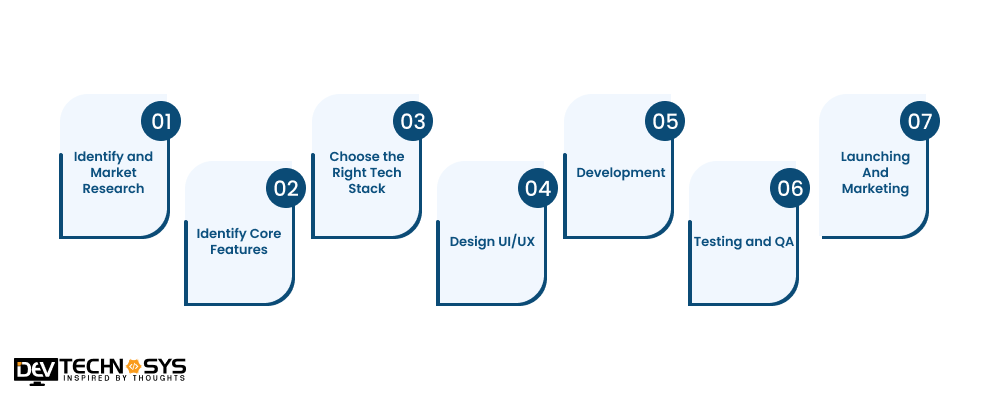
1. Identify and Market Research
In this first stage of development, identify your project requirements or needs and observe the features that must be installed. Discover existing or similar apps to understand their weaknesses and strengths and avoid mistakes that can be made in existing apps. Make strategies for the competitors and identify your ideal or primary users.
2. Identify Core Features
In this second stage of development, observe the core features that must be installed in your app and analyze the additional features or functions. Avoid unusual features that can increase the cost of development and impact the core features. Core features in healthcare IT solutions are real-time updates, medication inventory management, and book appointments.
3. Choose the Right Tech Stack
Let’s move to the third stage of development: hire dedicated developers to select the right tech stack to build robust healthcare IT software. Selecting the best tech stack is the critical point for well-designed software development. Tech stack involves backend, frontend, database, deployment, git, and other technologies.
4. Design UI/UX
In this fourth stage of development, design a user-friendly interface to motivate users to use your software. It provides easy access to all features or functions with just one tap. It includes many premium themes or plugins installed in your software to make it unique from all other existing software.
5. Development
Let’s move to the development stage, assemble highly skilled software developers to complete the project requirements, and create robust software. This stage involves many integrated modules, such as functionality, data security, backend development, devices or platforms, customization, testing, and complexity. The experienced team can do it to build successful software.
6. Testing and QA
After the development stage, it’s time to test your software, including fixing bugs or glitches that are automatically generated during the implementation stage. Testing is a crucial phase of software development; it fixes all issues or errors before the software or app is released. It also ensures the quality of the software, which may be affected during the implementation stage.
7. Launching And Marketing
It’s time to launch your software. To launch software on a selected platform, you must assemble a highly experienced team from a software development company. After publishing the software, it’s time to market it. Marketing includes email marketing, product marketing, affiliate marketing, paid collaborations, sharing on social media platforms, and networking marketing.
The Cost to Choose the Right Healthcare IT Solution For Your Organization
The healthcare website development cost mainly depends on the infrastructure, functions, features, platforms, integrated modes, size, complexity, and requirements. It also depends on the software developers’ experience level and locations. The cost of healthcare software ranges from $8,000 to $30,000. So, here we provide the cost chart with a detailed explanation, such as software type and their complexities:
| Healthcare IT Solution Development | Estimated Cost | Time Frame |
| Simple Healthcare IT Solution Development | $8000 – $15000 | 2 to 5 Months |
| Medium-Complex Healthcare IT Solution Development | $15000 – $25000 | 5 to 8 Months |
| High-Complex Healthcare IT Solution Development | $30000+ | 10+ Months |
The maintenance cost of Healthcare IT solution development is 15% to 20% of the overall development cost. Healthcare app maintenance services include hardware or software servers, networking servers, payment integration modes, security updates, feature updates, and performance optimization. The maintenance phase is crucial for software; it fixes all bugs or errors generated automatically during running time.
Tech Stack to Choose the Right Healthcare IT Solution For Your Organization
Choosing the right tech stack is essential to build a robust healthcare IT solution. So, here we describe the importance of tech consulting services for business growth in the healthcare sector:
| Layer | Technology | Focus |
| Frontend
|
Java Script, CSS, jQuery | Building rich user interface of app or web |
| Backend | Python, Swift, PHP, Java | Backend logic and application programming interface |
| Database | MongoDB, MariaDB, NoSQL | Managing the lifecycle of objects |
| Version Control
|
Git | Version tracking and collaboration. |
| Testing
|
Automation testing, Security testing, integrated testing | Ensure a seamless user experience and integrated features are working correctly. |
| Deployment
|
IBM Cloud, AWS, Microsoft Azure | Execute high-quality applications and storage capability. |
How Dev Technosys Will Help You?
In this blog, we discussed how to choose the right healthcare IT solution for your organization. It provides benefits and easily handles manual operations. We hope you have cleared all your doubts by reading this blog and exploring all the factors of healthcare IT solutions.
Healthcare IT solutions provide flexibility for health providers to receive patients’ appointments from worldwide by remote patient monitoring. Investing in healthcare IT solutions is a big opportunity to grow your business and reach a global audience.
Are you looking to develop a healthcare IT solution? Then, share your project requirements with Dev Technosys, a healthcare app development company, to provide excellent or reliable results.
Frequently Asked Questions
1. How Much Does it Cost to Build a Healthcare IT Solution Software?
The average cost to build a healthcare IT solution software is $8,000 to $30,000. Healthcare IT solution software costs mainly depend on integrated modes, size, complexity, features, and functions.
2. How Long Does it Take to Develop a Healthcare IT Solution Software?
Development of a healthcare IT solution software mainly takes 5 to 10 months overall. This time depends on the project’s requirements, the developer’s experience level, and the location.
3. What are the Ongoing Costs of Maintaining a Healthcare IT Solution Software?
The ongoing costs of maintaining a healthcare IT solution software mainly involves different factors and operations. Here is the list:
- Software licensing and subscription fees
- System maintenance and updates
- Technical support and help center
- Training and user support
- Hardware and infrastructure
4. Why do Organizations Invest in Healthcare IT Solution Software?
Organizations investing in healthcare provide massive benefits to grow your business and generate new revenue streams. Here is the list of benefits:
- Enhance patient care and safety
- Data management and analytics
- Enhance communication and coordination
- Higher return on investment
- Increased revenue opportunities
5. Which Technologies are Used to Build a Healthcare IT Solution Software?
Use incredible technologies to build robust healthcare IT solution software unique from other software. Here, we provide the list of technologies:
- Java
- Python
- Java Script
- Node js
- React Native
6. How Can You Reduce the Cost to Build a Healthcare IT Solution Software?
To reduce the cost of building a healthcare IT solution software, here we provide the list of reducing the costs:
- Leverage existing platforms and frameworks
- Use core features
- Utilize open-source technologies
- optimize resource utilization
- Plan for future scalability
7. How do you market and promote your Healthcare IT Solution Software?
Marketing of software can be performed with different sources such as email marketing, affiliate marketing, product marketing, paid collbartions, and sharing to social media platforms.
